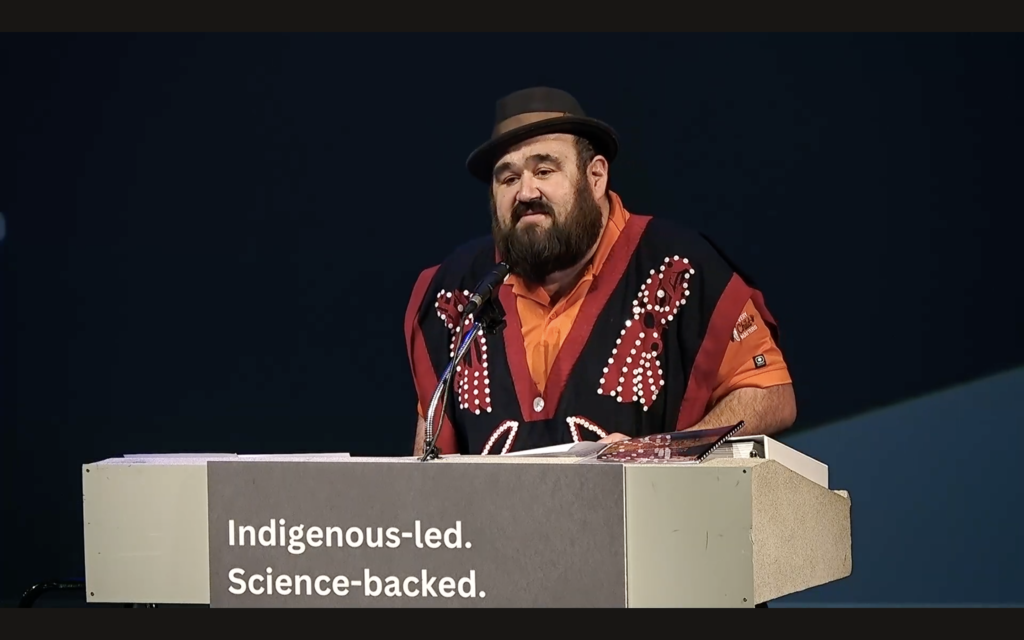
First Nations coalition and B.C. farmers publish book on salmon farming
April 10, 2024
By Aquaculture North America staff
 Dallas Smith, spokesperson for The Coalition of First Nations for Finfish Stewardship. (Photo: Screenshot First Nations for FinFish Stewardship YouTube)
Dallas Smith, spokesperson for The Coalition of First Nations for Finfish Stewardship. (Photo: Screenshot First Nations for FinFish Stewardship YouTube) The Coalition of First Nations for Finfish Stewardship, B.C. Salmon Farmers Association (BCSFA) and B.C. Centre for Aquatic Health Sciences launched a 500-page text on salmon farming in British Columbia on April 5.
This publication, Modern Salmon Farming in British Columbia: A Review, was requested by the First Nations group to provide additional transparency and details of salmon farming operations to answer questions from their communities.
“As First Nations with salmon farming in their territories move forward on the sector’s transition with government, some of our communities have noticed knowledge or information gaps regarding modern salmon farming. Our leadership wants to make the best-informed decisions for our communities regarding the sector and our marine management plans,” said Dallas Smith, spokesperson for the coalition. “This is why we asked the BCSFA to put together a textbook of information on fish farms that would answer the questions coming from our members.”
The book is also a compilation of data on salmon farming, the state of wild Pacific salmon, and the socioeconomic connections of both to coastal communities. The BCSFA has been compiling the science review for the past year with topics including the current state of Pacific salmon, sea lice, fish health, benthic conditions, incidental catch, mammal interactions, and First Nations stewardship.
“This collection of Western science and data is a good base for us to apply our rich traditional knowledge so that our leadership is armed with the holistic information we need to steward our waters and wild salmon, while protecting the social and economic health of our communities,” added Smith.
“BC salmon farmers have always been committed to respecting First Nations, responsible practices, environmental stewardship, and community engagement. We are furthering our commitment to transparency of our operations as we continue to innovate to reduce our environmental impact. This scientific review document launched today reinforces the sector’s position as a responsible contributor to the economy, the environment, and the well-being of coastal communities,” said Brian Kingzett, executive director of the BCSFA.
The 13-chapter text also expands on the importance of First Nations inclusion in the operations and data analysis of the sector, especially in applying their traditional knowledge and oversight. The coalition said the release of this text is timely for First Nations, the sector, and suppliers as federal fisheries minister Diane Lebouthillier is expected to announce the salmon farming licensing decision in B.C. this spring.
“At a time when Canadians are worried about food security, food affordability, and climate change, our communities have both the traditional knowledge and now a textbook of scientific evidence to choose how to best include salmon farming in our ocean and economic planning. This way, coastal First Nations can participate in Canada’s Blue Economy and help put food on tables for families across the country,” Smith said.
Advertisement
- Eliza Harrison’s mission in Ocean Rainforest to address climate change with seaweed aquaculture
- Hatch Blue opens 2024 applications for Ocean Foundry





